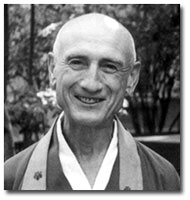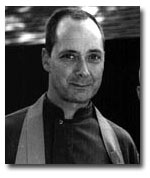

Philip Kapleau Roshi (1912-2004)
Organisation: Rochester Zen Center
The Rochester Zen Center is a Buddhist training center where men and women may practice daily Zen meditation, hear teishos (Zen commentaries), and take part in ceremonies and intensive retreats. Introductory workshops and training programs for those new to Zen Buddhism as well as for experienced practitioners are scheduled regularly.
Established in 1966 by Philip Kapleau Roshi on his return from Japan, the Zen Center grew to a large membership in Rochester and throughout the United States, Canada, Mexico, and Europe.
Main Centre
Rochester, NY 14607-2082
Tel: (585) 473-9180
Fax: (585) 473-6846
• Main Web site Rochester Zen Center: www.rzc.org
Affiliate RZC Zen Centers:
Web page: www.rzc.org/html/chapinmill/chapin.shtml
Madison, WI 53711
Tel: (608) 233-9723
Web site: www.madisonzen.org
Main Teacher / Sensei Bodhin Kjolhede (b. 1948)

Sensei Kjolhede was born in 1948 in Michigan and received a B.A. in Psychology at the University of Michigan in Ann Arbor prior to coming to the Zen Center in 1970. He was ordained in 1976, and completed twelve years of koan training under Roshi Kapleau before beginning to teach in 1983.
Books by Roshi Philip Kapleau
- The Three Pillars of Zen
- The Zen of Living and Dying, Zen
- Merging of East and West
- To Cherish All Life
- Awakening to Zen
- Straight to the Heart of Zen

